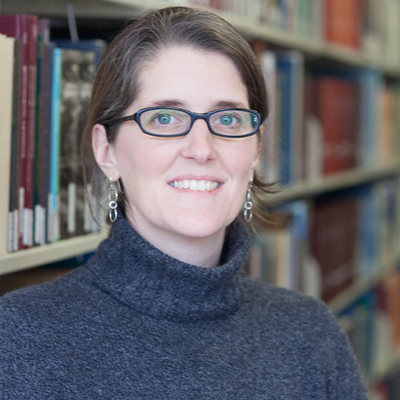Developing best practices for distinguishing sources of well water contamination in shale gas basins
Hydraulic fracturing has unleashed a boom in domestic shale gas production, with the US now projected to be a top exporter of natural gas within the coming decade. Despite the economic benefits, environmental concerns have made the debate over hydraulic fracturing in the Marcellus particularly contentious, often characterized by entrenched and polarized positions, along with misinformation, which has allowed little room for scientific research to inform decision-making. Dr. Laura Lautz, Associate Professor of Earth Sciences at Syracuse University, hopes to bring balanced, scientific information to the debate and to provide the community with a resource to better understand the potential impacts on water quality in the region. The Marcellus presents a unique opportunity to characterize water quality in two contrasting settings -- an area of intense shale gas production in Pennsylvania and an area with a permanent ban on hydraulic fracturing in New York.
With the belief that there simply “isn’t enough science” to definitively assess water quality impacts of hydraulic fracturing, Dr. Lautz engages the community by providing them unparalleled water testing services and is developing a publically-available database of regional water quality. Dr. Lautz is committed to overcoming limitations of prior studies by establishing a baseline of water quality in the region prior to hydraulic fracturing, using an unbiased sampling design in space and time, and making all water quality data freely available to the public. Her work is developing robust geochemical fingerprinting tools that can reliably distinguish water quality impairment associated with hydraulic fracturing from the other sources of water contamination in the human-impacted watersheds in which drilling is taking place. Thus, Dr. Lautz and her team are guiding best practices for water quality monitoring in shale gas basins by identifying the most powerful analytes for discriminating sources of water quality impairment.
Current research includes:
-
Community Engagement: Dr. Lautz and her team directly engage landowners in their research by providing participants with detailed assessment of their well water quality at no cost. Community members on all sides of the hydraulic fracturing debate are eager to participate in Dr. Lautz’s project because they receive information about their well water quality and contribute to a broader community resource - a publically available database of water quality for the region.
-
Creating a Public Database: Using information collected from landowners’ water wells, Dr. Lautz is creating a publicly available, online water quality database for New York documenting spatial and temporal variability in well water chemistry pre-hydraulic fracturing. Additional funding would support expansion of this data collection effort to Pennsylvania. Since 2012, Dr. Lautz has sampled over 200 domestic wells in southern New York and has data coverage for an area spanning five countries and over 10,000 square kilometers.
-
Fingerprinting Contamination: Dr. Lautz is developing robust and effective tools for fingerprinting contamination due to hydraulic fracturing, versus other contamination sources in the region. She and her team are developing sophisticated tools that will use geochemistry to pinpoint whether sources of contamination in well water are most likely due to hydraulic fracturing, wastewater effluent, road runoff, or agricultural sources. Such a tool will be critical in future cases of alleged contamination due to shale gas production practices.

Bio
Dr. Laura Lautz grew up in Central New York and attended college in Pennsylvania. Thus, she has both a personal and professional interest in regional water quality and the potential impacts of energy production. Prior to becoming a researcher, Dr. Lautz was a high school science teacher. As a teacher, she enjoyed sharing remarkable scientific discoveries but grew more interested in how researchers came to their findings rather than just knowing the end results. When she had the opportunity to work for NASA participating in educational outreach, she accepted the position and was thrown into the world of research and lab work. There, she found she could answer the challenging questions in science she had always questioned and began her Ph.D. program.
As a researcher and a concerned citizen, Dr. Lautz has carefully watched the dramatic shift in energy production in the US. In fact, one epicenter of the growth in energy production is in her own backyard - the Marcellus shale play. Living and working in Central New York and studying water quality for the past decade, she has seen concerns over potential links between shale gas production and water quality take center stage in her field. Dr. Lautz aims to bring balanced, empirical research to the conversation to better understand water quality threats in her home region.
In her free time, her hobbies align well with her research. Dr. Lautz enjoys traveling, especially to far off remote areas where she is able to camp simply and see the world. Much of her time is also spent with her young family.
Website: http://hydrology.syr.edu
In the News
Publications
Awards
2008 National Science Foundation Faculty Early Career Development (CAREER) Grant Recipient
2015 National Science Foundation Research Traineeship Award Recipient
Lautz is the principal investigator for a large ($3 million) NSF grant to support graduate training on water-energy interactions. Note that this program supports graduate student training only - not the actual research projects. (http://news.syr.edu/university-awarded-3-million-grant-for-graduate-level-stem-training-40661/)


